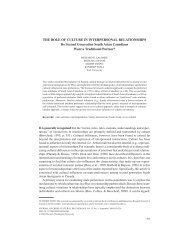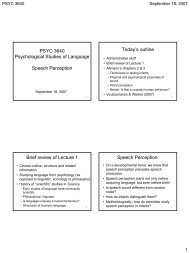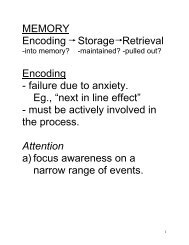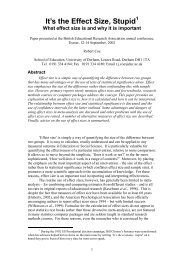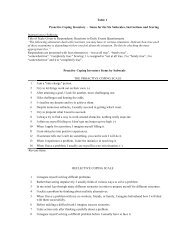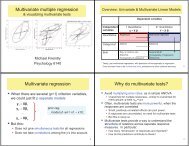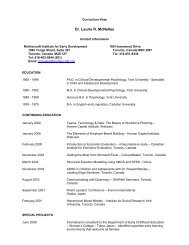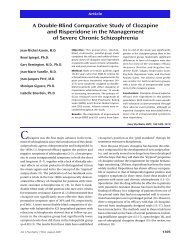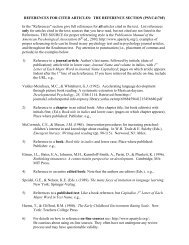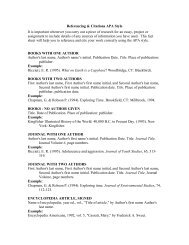The Drama of the Gifted Child (The Search for the True Self)
The Drama of the Gifted Child (The Search for the True Self)
The Drama of the Gifted Child (The Search for the True Self)
Create successful ePaper yourself
Turn your PDF publications into a flip-book with our unique Google optimized e-Paper software.
course <strong>of</strong> analysis it can <strong>the</strong>n be seen how far this contempt<br />
has protected him from his own feelings.<br />
Sometimes contemptuous feelings toward <strong>the</strong> analyst will<br />
show up very early in <strong>the</strong> analysis. But this can only be<br />
worked through when <strong>the</strong> analysand has found <strong>the</strong> broader<br />
basis <strong>for</strong> his whole world <strong>of</strong> feeling on which he can <strong>the</strong>n<br />
play out and work through his ambivalence. It is <strong>the</strong>n decisive<br />
that <strong>the</strong> analyst should not let himself be provoked<br />
into demonstrating his own superiority to <strong>the</strong> patient. <strong>The</strong><br />
contempt that Kernberg describes as ubiquitous in grandiose,<br />
successful people always includes contempt <strong>for</strong> <strong>the</strong>ir<br />
own true selves. For <strong>the</strong>ir scorn implies: without <strong>the</strong>se<br />
qualities, which I have, a person is completely worthless.<br />
That means fur<strong>the</strong>r: without <strong>the</strong>se achievements, <strong>the</strong>se<br />
gifts, I could never be loved, would never have been loved.<br />
Thus <strong>the</strong> small, powerless child, who is helplessly dependent<br />
on o<strong>the</strong>rs, and also <strong>the</strong> awkward or difficult child will<br />
have to suffer contempt. Grandiosity guarantees that <strong>the</strong><br />
illusion continues: I was loved.<br />
Those whose grandiose, false self needs to act out this<br />
certainty are <strong>of</strong>ten envied or admired by those whose narcissistic<br />
disturbance has a primarily depressive structure,<br />
whereas <strong>the</strong> grandiose will despise <strong>the</strong> depressives. Never<strong>the</strong>less,<br />
this is no basis <strong>for</strong> a typology, since grandiosity<br />
and depression express <strong>the</strong> same underlying problem.<br />
Contempt as a rule will cease with <strong>the</strong> beginning <strong>of</strong><br />
mourning <strong>for</strong> <strong>the</strong> irreversible that cannot be changed. For<br />
contempt, too, had in its own way served to deny <strong>the</strong> reality<br />
<strong>of</strong> <strong>the</strong> past. It is, after all, less painful to think that <strong>the</strong><br />
o<strong>the</strong>rs do not understand because <strong>the</strong>y are too stupid. <strong>The</strong>n<br />
one can make ef<strong>for</strong>ts to explain things to <strong>the</strong>m. This is <strong>the</strong><br />
process, described by Kohut, that takes place when idealization<br />
<strong>of</strong> <strong>the</strong> self-object fails and <strong>the</strong> grandiose self has to<br />
be ca<strong>the</strong>cted. <strong>The</strong>re seems to be a way out, in fantasy at<br />
104



